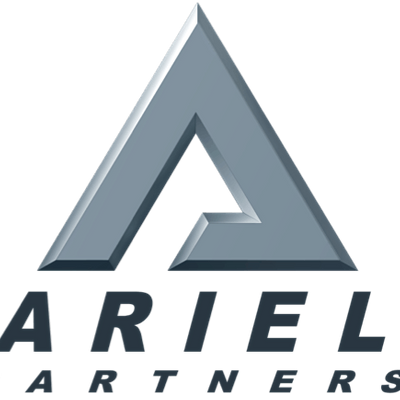
About this Event
Meeting Day, Date, Time
Days: Monday to Thursday
Dates: 05/05/2025 - 05/08/2025
Time: 1:00 PM to 5:00 PM EST
Duration: 16 hours
Location: Online via ZOOM
Class Description
Are you finding the demands to your team overwhelming and the process chaotic? Are your customers saying your team takes too long to deliver or that they have no idea what your team is busy doing? Do you have a growing backlog with requests months to years old? Are people with critical skills not available when you need them? Do you feel like priorities are changing all the time? On top of your ever-growing delivery workload, are you able to develop the capabilities of your team?
This interactive workshop shows how the Kanban Method helps individuals, teams, and programs to manage and improve the delivery of products or services to customers. You will learn the core concepts and will practice the design of a Kanban system via group exercises, practical examples, and engaging classroom type teaching. You will also learn how to use Kanban to reduce work delivery times, prioritize demand based on team capacity, reduce firefighting and minimize the negative effects of unplanned work. You will also see how within months of using Kanban systems, teams worldwide pulled themselves out of common sinkholes and significantly improved cycle times, quality, trust with customers and team morale.
This course is delivered virtually in half-day (four hour) increments over 4 days, using a combination of online (Zoom) video conferencing software, virtual whiteboards in Miro, fun interactive exercises via Kahoot, and an online simulation environment (Okaloa) for exploring scenarios and prototyping improvements.
Included in this course is an e-book copy of David Anderson’s Kanban: Successful Evolutionary Change for Your Technology Business. The workshop reflects the theory outlined in this book. After successful completion of this course, attendees will receive a membership to Kanban University (KU), a certificate of completion and access to the members’ only sections of the KU website.
Working in small teams, class attendees will learn the end-to-end process for analyzing and designing a Kanban system and how using this service-delivery approach can help unify teams and promote cross-functional collaboration. They will learn the basic concepts of flow, pull, and collaborative improvement. At the end of the training, participants will understand:
- How to identify and address bottlenecks
- How to work with shifting priorities
- How to deal with interrupt work and multi-tasking
The class is presented in the form of intensive, non-technical exercises organized in small groups, games, classroom teaching and discussion.
Topics: Kanban System Design, Classes of Service, Workflow Mapping, Visualization, Theory of Constraints, Risk Management, Metrics, Case Studies, Kanban Simulation
Session 1: Interactive Kanban Simulation
Meet and Experience Kanban
- Full simulation using the Kanban Okaloa Simulation
Session 2: Definitions and Understanding
Definition of Kanban
- Foundational Principles (Change Management and Service Delivery)
- Core Practices
- The Kanban Lens
- The Kanban Values
- Service orientation
Understanding Kanban
- Visualization
- Pull-Based Systems
- Commitment in Kanban
- Replenishment and Planning
- Delivery of Products
- Lead and End-to-End Cycle Times
- Little’s Law
- Cumulative Flow Diagrams
Session 3: Metrics, Case Studies, Sample Boards
Metrics in Kanban Systems
- Flow Efficiency
- Cycle Time
- Throughput
Reviews of a case study as well as practical work with examples of the participants in the design of a Kanban system based on the System Thinking Approach to Implementing Kanban.
Session 4: Systems Thinking Approach to Implementing Kanban
Implementing Kanban via STATIK - Systems Thinking Approach to Implementing Kanban
- Understanding Sources of Variability
- Identifying Opportunities to Improve
- Analyzing Demand and Capability
- Modelling Workflow
- Designing a Kanban System
- Work Item Types
- Classes of Service
- Motives for change
Kanban Board Design
- Designing Kanban Ticket
- Examples of Visual Kanban Boards
Finally, students will be challenged to develop, refine, and utilize their own Kanban to drive decisions and facilitate performance improvements. Learning will be very interactive and hands-on.
Certificate issued
Standard certificate of completion only. This is part 1 of a 2-part credential certificate program for the Kanban Management Professional (KMP) Credential.
Positioning and Target Group
This course is suited for those who want to acquire solid knowledge about the core of the Kanban method and want to design or improve Kanban systems. This is for all kinds of knowledge workers including:
This training is for all kinds of knowledge workers:
- Underwriters
- Loan processors
- HR professionals
- Bookkeepers
- Copy editors
- Advertising professionals
- Help desk engineers
- Software teams
All kinds of team members can benefit from this training, including:
- Project and Program Manager
- Team leads, Managers
- Development leads, Product Designers, Product Engineers
- Business Analysts, Product Owners
- Team Members
Agile Practitioners of all kinds can benefit from learning and applying Kanban practices, including:
- eXtreme Programming Engineers
- Scrum Masters
- Scaled Agile Framework Release Train Engineers
- Large Scale Scrum Practitioners
- Disciplined Agile Practitioners
Prerequisites
Attendees are expected to have read the 14-page The Official Guide to the Kanban Method https://kanban.university/kanban-guide
Format
The course is a mix of presentation, breakout groups, simulation, and exercises.
Tools
- Zoom videoconferencing software
- Kahoot interactive quizzes
- Miro collaborative whiteboard

Craeg Strong is the CTO of Ariel Partners, a small IT consulting company based in Times Square. He is currently teaching public classes in Kanban, Human Centered Design, and DevSecOps and facilitating the adoption of Lean/Agile methods to transform companies’ way of working in the NYC area.
Craeg has 25 years of experience in information technology, starting at Project Athena during his undergraduate studies at MIT. Mr. Strong leverages his experience as a hands-on software architect, trainer and agile coach to help remove the barriers that prevent organizations from adopting new technologies-- such as cloud. Mr. Strong led a successful transformation of a major FBI Criminal justice program from a traditional waterfall lifecycle and manual intensive processes to lighter weight agile processes and full DevOps automation.
Event Venue
Online
USD 1300.00












